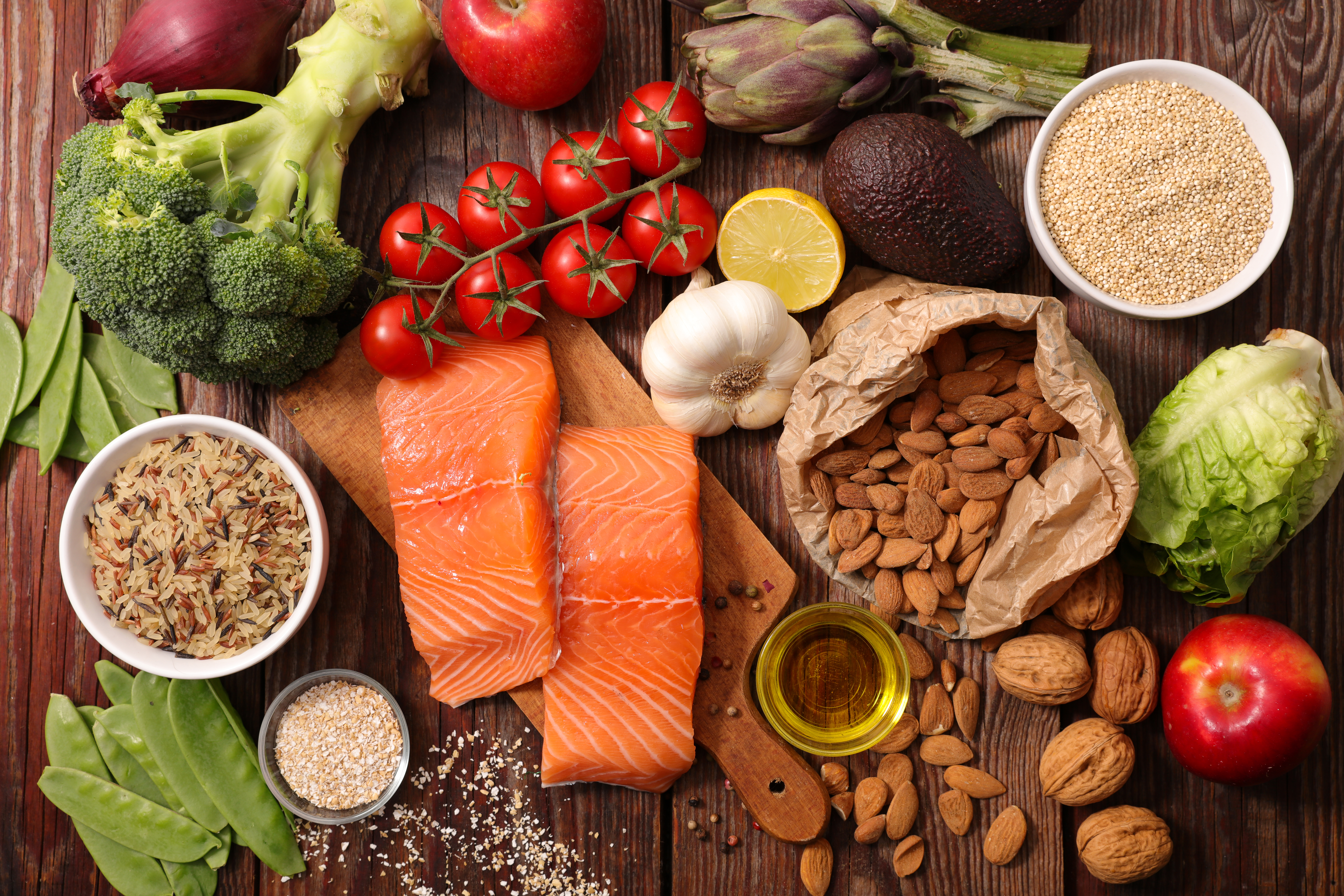
Have you ever experienced your skin getting red and itchy? If yes, you are probably familiar with atopic dermatitis. It is an inflammatory skin condition that can cause the skin to be irritated, filled with blisters, and even patched with itchy rashes. This condition can affect people of any age with more chronic cases lasting longer and tending to flare up more periodically.1
So if you have ever observed your skin getting red and itchy after eating, the food may actually be the culprit.
Studies have shown an increasing awareness that links a person’s diet to their overall health, specifically those
concerned with dietary factors that can aggravate atopic dermatitis or trigger systemic contact dermatitis. These
reactions can happen any time within minutes to hours of specific food exposure, while the latest can occur up to
only two days after.2
That is because, for many who suffer from existing dermatitis, there are some foods that can trigger the release of
antibodies in response to a specific threat. This will then result in skin sensitivity and lead to
inflammation.3
Eczema-Friendly Diet
One immediate way to avoid these unwanted flare-ups would be to observe an anti-inflammatory diet. Here are some examples of anti-inflammatory foods to keep in mind and include in your diet:
● Fish
It is a natural source of omega-3 fatty acids that can be used to combat inflammation in the body. Fish that are high in omega-3 include salmon, albacore tuna, mackerel, sardines, and herring.4
● Probiotic-Rich Foods
Whilst the good bacteria found in these foods promote good gut health, they are also anti-inflammatory in nature. Examples of these include yogurt, miso soup, and tempeh. There are also other fermented food and drinks like kefir, kombucha, and sauerkraut that also contain probiotics.4
● Inflammation-Fighting Flavonoids
Flavonoids are essentially plant-based foods that provide many health benefits and
antioxidant effects.5 vibrantly colored fruits and vegetables, like apples, broccoli, cherries, spinach,
and kale to name a few.3
Elimination Diet
This directly involves the removal of certain or specific foods from your diet to help
identify the cause of an allergic reaction or other food-related symptoms.6 Typically, if you are
struggling with eczema-related flare-ups and are trying to find ways to manage this
intolerance, this may work for you. Here, it is best advised to remove common inflammatory-inducing foods from your
diet for at least 3 days or for a few weeks to monitor your skin for any changes and to see if the symptoms
subside.6,7 You may also consider removing one food at a time so you can be more accurate with what
exactly is contributing to your eczema-related flare-ups. Removing one specific food at a time, instead of a food
group, gives you more liberty with what to include in your diet without being too limiting.7

Inflammatory Foods
There are three main examples of foods that can trigger flares: gluten, dairy, and sugar.
If you mindfully notice your eczema getting worse whenever you come into contact and eat these foods, it may be wise
to consider limiting your intake or removing them altogether.8
● Gluten
There are many people who believe that they experience eczema relief when they follow a gluten-free diet. This is
because those with an intolerance to gluten usually experience eczema. More so, people with eczema often have a
notion that consuming gluten worsens their symptoms.9
● Dairy
If you are allergic to dairy, it may worsen eczema symptoms when you consume it. That is why those who have
eczema-prone skin exclude dairy from their diet. Though it is important to note that fermented dairy, such as
yogurt, can actually help eczema as it is an important source of probiotics that improve gut
health.10
● Sugar
Regular consumption of sugars, especially those that come from sodas and candy pose a risk of an increase in skin
inflammation and can potentially trigger
eczema for some people. Natural sugars found in fruits and vegetables, however, are different and may be helpful for
some people with eczema.8

Seek Professional Help
All things considered, it is still best to consult with a dermatologist before assuming that any food or food group is the reason behind your skin flare-ups. Set an appointment with them so they can:
● Conduct a full physical exam including taking your full medical history.
● Ask specific questions regarding when and where your skin flares happen.
● Undergo blood or skin tests to see if certain food triggers cause these reactions.
● Suggest concrete steps to get rid of the most likely food triggers.
● Prescribe treatment to help ease skin flare-ups and agitation.11
At the end of the day, it is common knowledge that each skin is unique in its own way. It
is always beneficial to be mindful of what you put into your body and see how it affects your skin. This awareness
is already the first step in identifying the root of your eczema-prone skin.
RE-LGH-PYSG (ALL)-ART-PUC-0044-V0
References:
1 Mayo Clinic. 2022. Atopic dermatitis (eczema) - Symptoms and causes. [online] Available at:
<https://www.mayoclinic.org/diseases-conditions/atopic-dermatitis-eczema/symptoms-causes/syc-20353273#:~:text=Atopic%20dermatitis%20(eczema)%20is%20a,and%20tends%20to%20flare%20periodically>
[Accessed 6 June 2022].
2 Katta, R. and Schlichte, M., 2022. Diet and Dermatitis: Food Triggers. [online] PubMed Central (PMC).
Available at<https://www.ncbi.nlm.nih.gov/pmc/articles/PMC3970830/> [Accessed 6 June 2022].
3 A randomized, single centre, single-blind, parallel, home use, cosmetic study to investigate the safety,
efficacy and acceptability of W0154 Cream in subjects with moderately dry to very dry skin and signs and
symptoms of redness, irritation and inflammation, 2012, Dr. Suzana Louth [Data on file]
4 Medicalnewstoday.com. 2022. Eczema diet tips: Foods to eat and avoid. [online] Available at
<https://www.medicalnewstoday.com/articles/320855#elimination-diet> [Accessed 6 June 2022].
5 Sally R., 2021. What are Flavonoids? [online] News-Medical.net. Available at
<https://www.news-medical.net/health/What-are
Flavonoids.aspx#:~:text=Flavonoids%20are%20a%20group%20of,and%20are%20soluble%20in%20water.> [Accessed 6 June
2022].
6 Apothecopharmacy.com. 2022. Eczema Diet Tips: Foods to Eat and Avoid for Eczema. [online] Available at
<https://www.apothecopharmacy.com/blog/eczema-diet-tips-foods-to-eat-and-avoid-for-eczema/> [Accessed 6
June 2022].
7 Bennington-Castro, J. and Ross Radusky, M., 2022. Eczema and Diet: What To Know. [online] EverydayHealth.com.
Available at <https://www.everydayhealth.com/eczema/diet/> [Accessed 6 June 2022].
8 Goldenberg A., 2022. Can Your Diet Improve or Worsen Eczema Symptoms? [online] GoodRX.com Available at
<https://www.goodrx.com/conditions/eczema/diet-eczema> [Accessed 6 June 2022].
9 Petre, A., 2022. What’s the Relationship Between Gluten and Eczema?. [online] Healthline. Available at:
<https://www.healthline.com/nutrition/gluten-and-eczema#bottom-line> [Accessed 6 June 2022].
10 Harris, E., 2022. Why Dairy May Actually Help Ease Eczema. [online] Healthline. Available at:
<https://www.healthline.com/health/dairy-may-help-ease-eczema#the-debate> [Accessed 6 June 2022].
11 WebMD. 2022. Atopic Dermatitis and Food Triggers. [online] Available at:
<https://www.webmd.com/skin-problems-and-treatments/eczema/features/diet-link-atopicd> [Accessed 6 June
2022].


